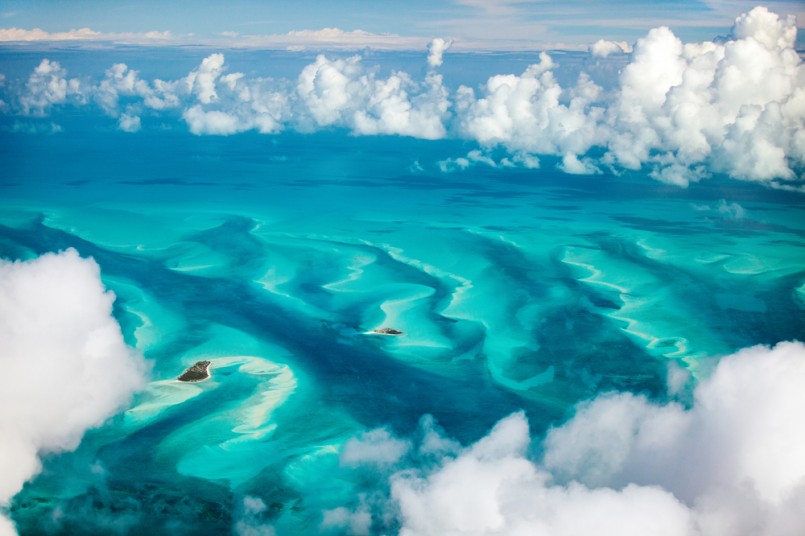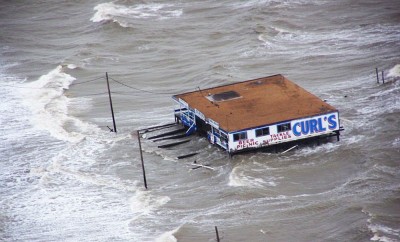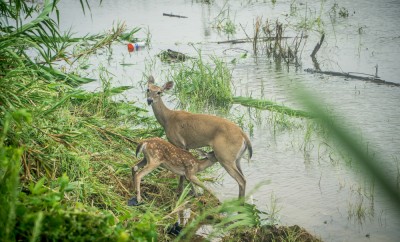Environment
Warmer waters & marine life: How the oceans will shift with climate change

Image: Shutterstock/BlueOrange Studio
Biologists have announced evidence that climate change is having a unique effect on our planet’s oceans, the marine life struggling to survive within it, and the humans dependent upon those species. According to a study released in the journal Nature Climate Change, a team of researchers from Princeton, Yale, Arizona State and Rutgers Universities has discovered unusual migration patterns likely to lead fish and other aquatic life away from warmer waters near the equator toward cooler areas near the poles.
Using a unique mathematical formula that tracks natural resource migration and variations in community affluence according to geographical region, the research team established that populations in temperate zones more reliant upon fish as a food source and for their livelihoods may soon face issues of scarcity. Subsequently, wealthier areas typically closer to the poles and farther from the equator will likely receive the migrating fish instead. This transfer will probably increase the already significant disparities of wealth between affluent and poor populations of areas affected.
Preparation for such transitions would need to be considered across numerous intersecting issues. For example, not only would the populations losing a food source need to prepare accordingly, but so would any other groups managing adjustments to new and changing marine life, and a re-evaluation of the design of fishing boats and proper gear would be necessary. When recent cod numbers diminished in Newfoundland, crab and lobster became the new focus of dominant fisheries, requiring a significant change in operations involving completely new equipment. Similar cases would likely ensue with the migration of other species.
A major shift in substantial amounts of aquatic life from the tropical to polar regions could also create dietary protein deficiencies for billions of people according to the World Health Organization. Creatures like fish, crustaceans and mollusks made up 15-20% of protein consumed by between 2.9-4.3 billion people in 2010 in some countries, said the Marine Stewardship Council. For other geographical areas, this number could have been even higher.
Grégory Beaugrand, a senior researcher at an ocean laboratory in Lille, France, warns, “There’s no precedent in all of human history for what may be about to happen, which is extraordinarily risky given that we depend on the oceans for ecosystem services from food to oxygen production and heat storage.”
The scary part is that some aquatic life is already on the move, like northern Atlantic plankton. With a noticeable shift of ten degrees latitude, the tiny organisms are essential as they create oxygen necessary to all other aspects of the food chain. Any animal that can move according to temperature changes will, and thus so will the dependent components of that same system – and that eventually will include humans.





0 comments